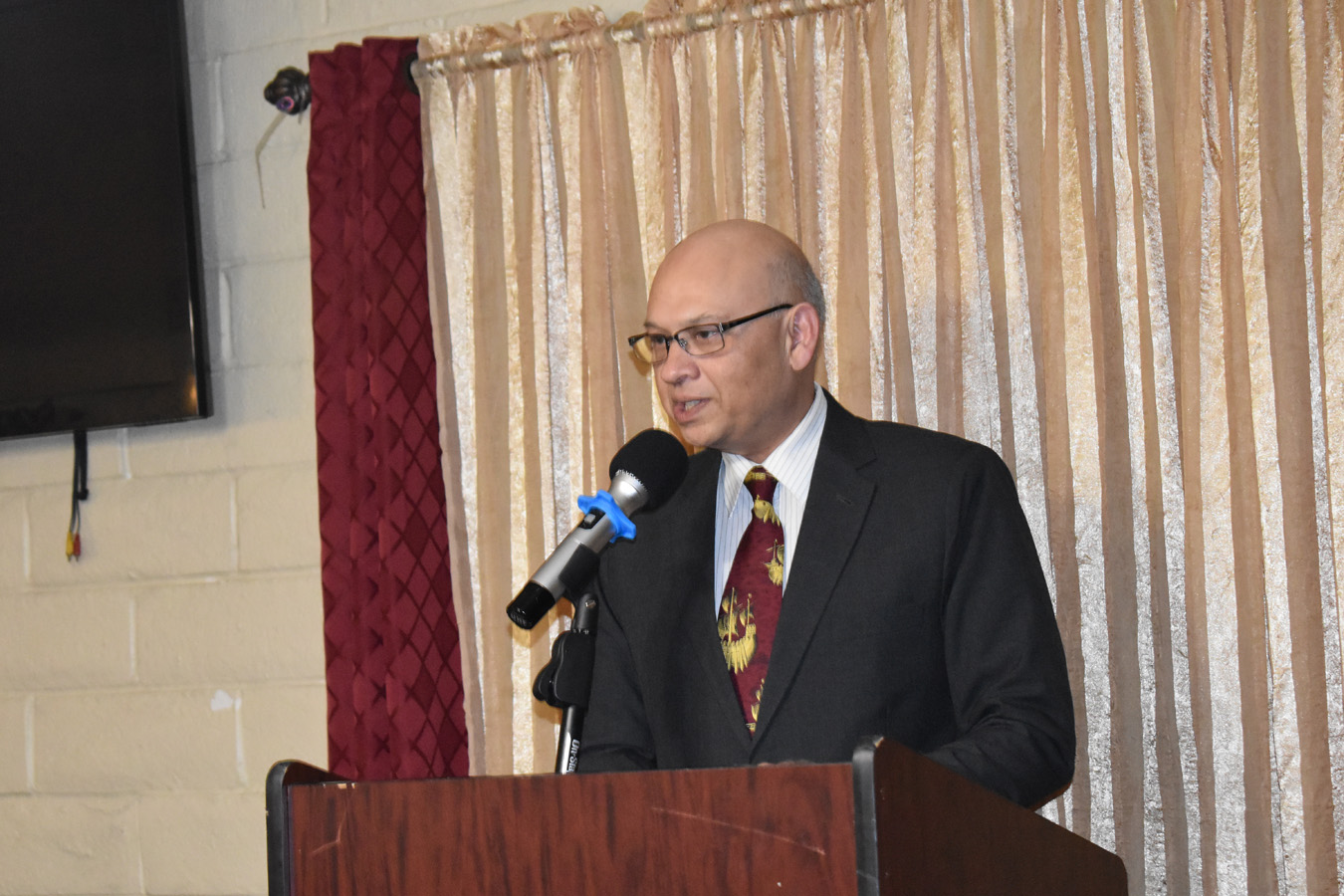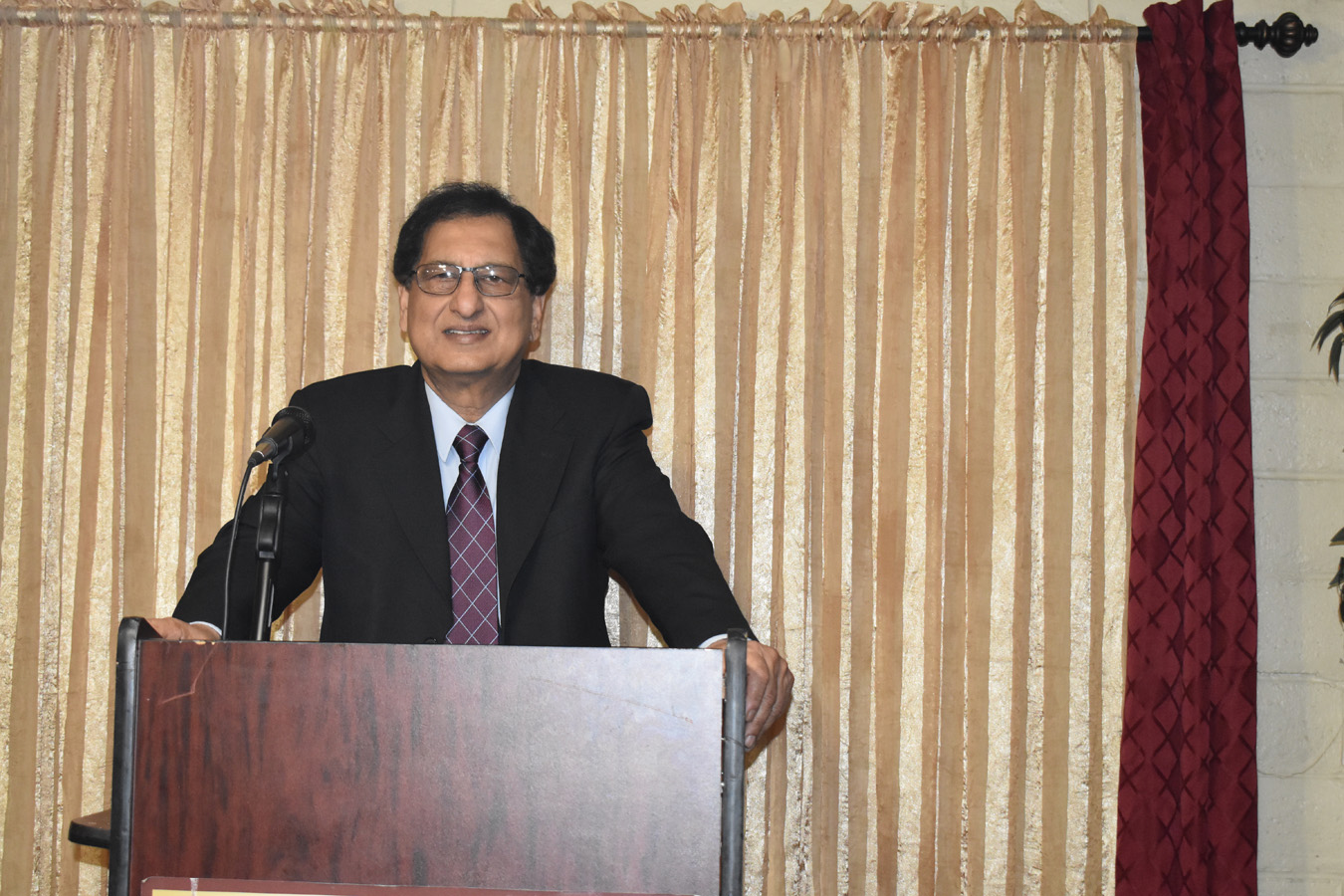Islam & Muslims in the 21st Century launched (Continued)
Mr. Meer Shams Nazir, an IT engineer, pointed out that Mr. Ghazali’s book is about the current affairs of the Muslim world, particularly after the post-colonial era. “Instead of digging into the history of the Muslim World he moves forward and talks about the present situation. He begins with the Muslim World Today to focus on the current and recent developments.”
Mr. Meer was impressed with an in-depth analysis of the Harvard Professor Samuel Huntington’s concept of a clash of civilizations which is based on the notion of the Western domination of the world. Huntington predicts that future world politics will be determined by conflicts between different civilizations/cultures.
He envisaged that future competition and conflict would be based not on national perceptions and goals but on larger cultural groupings "civilizations", of which he identified eight civilizations: the Western, Confucian, Japanese, Islamic, Hindu, Slavic-Orthodox, Latin American and possibly African.
Huntington is hostile to the Muslims and the Chinese, suspicious of the Slav-Orthodox and indifferent to the Africans and South Americans. He is convinced that the West is all powerful and can impose its will on the rest of the world.
According to Huntington, it is not the clash of interests that leads to conflict; the simple fact is that differences between cultures engender war. Mr. Ghazali quotes Jochen Hippler, author of The Next Threat: The Western Perception of Islam, to stress his point. Hippler says “in a certain sense you could call his argument 'culturally racist'. The Muslims (or Chinese) are different from us and therefore dangerous. Unlike in classic racism, this difference is not generically but culturally based. There is such a gulf between their values and ways of thinking and ours that understanding or cross-pollination is almost unthinkable. Only military solutions can promise result.”
Hippler further elaborates this point very convincingly: Huntington's image of Islam (or of other Asian cultures) is hardly original. It follows the current stereotypes and clichés of popular literature and some of the media. Yet he manages brilliantly to embellish these repeated fears pseudo-scientifically and elevate them ideologically. His success is in making the old clichés acceptable in foreign policy debate. For Huntington, Islam is ideologically hostile and anti-Western. It is also a military threat in itself due to Chinese (Confucian) arms supplies. Islam is bloody, with a long warring tradition against the West. (The fact that Muslims have often been the victims rather than the perpetrators of violence from Bosnia to India hardly troubles him.)
Mr. Ghazali also quotes Prof. Edward Said, the author of ‘Orientalism’ to highlight his critique of Clash of Civilization. According to Prof. Said, Huntington is an intellectual serving the interests of the last superpower (he is actually quite frank about this) whose pre-eminence as a world power he is set on serving and maintaining. The real subject of his work therefore is not how to reduce the conflict of cultures, but how to turn them to American advantage, as a way of conceding to the United States the right to lead the whole world.
Mr. Khalid Saeed, National President of American Muslim Voice was of the view that Mr. Ghazali’s principle argument is that the Muslim World is part of the under developed Third World countries which remains a target for economic exploitation by the western countries since the 15th century with the so-called Age of Discovery.
The author has chosen this argument to expose the plight of the Muslim world in the 21st Century, Khalid Saeed said adding: The 20th century will be remembered in the collective Muslim memory as a period of failure and humiliation. Today, at almost end of the second decade of the 21th century, there are hardly any better prospects for around 1.6 billion Muslims around the globe.
Mr. Ghazali vehemently contradicts the western contention that the Islamic practices can be attributed to the social and economic problems of the Muslims, Khalid Saeed said. “To rephrase the Western argument it is like this: Muslim faith or Islam is responsible for all the ills of the Muslim World. To support his argument Mr. Ghazali has extensively quoted opinions and statistics of some unbiased western experts.”
For centuries the Western colonialism pursued a strategy of “divide and rule” to maintain colonial occupation, today, the Western imperialism is pursuing a strategy of “wreck and ruin,” since it can no longer install puppet regimes to do its bidding, Khalid Saeed pointed out.
Mr. Ghazali is a prolific writer who has written several books which are quoted by international think tanks; his style of writing is convincing; I believe that the author is successful in proving his case, Khalid Saeed concluded.
Ms. Samina Sundas, Executive Director of the American Muslim Voice, Ms. Durriya Syed, Dr. Irfaq Haq, and Dr. Mohammad Tariq also spoke about the book.
Online Magazine launched in 2003
Executive Editor: Abdus Sattar Ghazali



